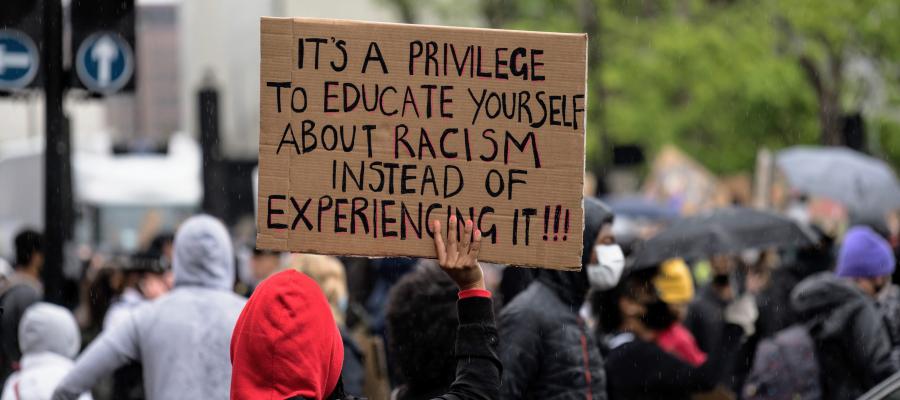Why do some people have a strange desire to do weird things for no (good) reason? There's something fascinating about kids who eat laundry soap as part of a “challenge,” or people who deliberately... Read more
Philosophy for the Apocalypse
30
Sep 2020
Several philosophers have recently remarked that it’s hard to do philosophy in the face of the apocalypse. Philosophy is sometimes seen as a special treat for the fattest of times, and an utterly impractical hobby in the leanest. Not only is this idea false, it’s also self-defeating.
Read moreWho Gets to be a Citizen?
15
Sep 2020
How should we decide who gets to be a citizen? Should your political rights really depend on where you were born? Would it be better to live in a world without borders? This week, we’re talking about citizenship, political rights, and justice.
Read moreWhy Do People Argue about Fiction?
09
Sep 2020
For this month's puzzle, I'm focusing on the human ability to produce and consume fiction. Why do creatures evolved to survive in a harsh reality spend so much time, energy, and effort doing this? And why do we argue with one another about what “really” happened in these various fictional worlds?
Read moreDoes Meritocracy Have Merit?
28
Aug 2020
Should people be rewarded for their talent and effort? Or should society treat us all the same? Is meritocracy just a smokescreen for a system that’s rigged? These are some of the questions we're asking on this week's show on "The Merits of Meritocracy."
Read moreAnother Reason Zoom Is So Draining
18
Aug 2020
There is a particular dead-eyed, mind-numbing exhaustion I feel at the end of every video meeting I’ve ever attended. Zoom is exhausting for many reasons, but the most important one is that it is missing a fundamental piece of social interaction—joint attention.
Read moreKant on Lying to Robots, Part II
10
Aug 2020
I recently posed a puzzle about Kant's moral philosophy. The puzzle was this: if lying is always wrong, would it be wrong (according to Kant’s theory) to lie to a robot with speech technology who came to your door trying to locate innocent people who were hiding from a tyrannical government?
Read moreDiscriminating Streets
07
Aug 2020
Why is there so much bad urban design? How can we make our streets more welcoming to everyone? Is the perfect city merely a mirage? This week on the show we’re asking whether streets can discriminate, and how we can design our cities so they are more just.
Read moreAbortion and Dehumanization
04
Aug 2020
From time to time, pro-life advocates appropriate my work on dehumanization to argue that those who take a pro-choice position routinely dehumanize the unborn, paving the way for murder-by-abortion. I want to show why these arguments don’t hold any water.
Read moreOn Ethicists and Jerks
27
Jul 2020
Can studying moral philosophy make you more moral? Could it make you less moral? How do we become more virtuous? Or should we all just settle for moral mediocrity? These are some of the questions we’re thinking about on this week’s show, “The Ethical Jerk.”
Read moreA Cat's Life
24
Jul 2020
Listener Jacob B. in the UK got in touch with a question on our recent "Pet Ethics" show. He wanted to know if preventing his cat from staying out at night to make sure she is not killed by a fox means he is depriving her of an essential part of a cat's life experience. Ray responds.
Read moreThe Value of Metaphor in a Pandemic
20
Jul 2020
Metaphors are some of the greatest tools of human expression. They can have great emotional power and can unite us in how we conceptualize the world. But we don’t yet have the rich and transformative ways of thinking about the global pandemic that a good metaphor could provide.
Read moreBenjamin and Modern Enchantment
14
Jul 2020
Has the modern world become disenchanted? Is there a way to find the magic again? In this week's show, we're discussing Walter Benjamin, the German-Jewish cultural critic from the early 20th century, who had fascinating things to say about this.
Read moreThe Ethics of Pet Keeping
27
Jun 2020
Do we really have the right to own our fellow creatures? Are there some animals that should never be kept as pets? Is it okay to declaw a cat, clip a bird’s wings, or dock a dog's tail? These are some of the questions we're asking on this week's show.
Read moreCelebrating Our 500th Episode
22
Jun 2020
Philosophy Talk just celebrated our 500th episode. Quite an accomplishment from the point of view of the 1st episode. Let me reminisce for a bit, going back in time to when I first had the idea for the program, getting Ken Taylor on board, creating a pilot episode, and finally getting broadcast in 2004.
Read moreNaïve Racism
17
Jun 2020
Social psychology has shown that people tend to generalize on incidents of good behavior for their in-group, but generalize on bad behavior for members of out-groups. This tendency leads to a form of racism I call "naïve" because the racist person has no idea that their minds are operating this way.
Read moreCovid and the Veil of Ignorance
12
Jun 2020
As I’ve struggled to find a film to write about, I thought I’d write about a feature of Covid that is particularly philosophically relevant: you can be infected but be asymptomatic. So you must make decisions under uncertainty, not knowing whether you are sick or contagious—victim or vector.
Read moreYour Racist Mental Habits
10
Jun 2020
A flurry of studies have shown that even self-avowed non-racists can still be implicitly biased against black people. There is not much agreement about how to think about the nature of this ‘implicit’ phenomenon, but one possibility is that our racist biases are best understood as a perceptual habit.
Read moreDemonizing Black Men
02
Jun 2020
Many of us watched in horror as a Minnesota policeman casually kneeled on George Floyd’s neck until he lay limp and lifeless on the pavement. This is a manifestation of what I call demonizing dehumanization. Almost always, it is men from racially oppressed groups who are dehumanized in this way.
Read moreListener Covidundrums
28
May 2020
Are there particular moral dilemmas and conundrums the coronavirus pandemic and its effects have raised for you? Have you struggled to find an ethical way to balance your own needs and the needs of others? In this week’s show we’re discussing listeners’ real life covidundrums.
Read morePuzzle 3: Kant on Lying to Robots
22
May 2020
Many of you know by now that I’ve committed to presenting philosophical puzzles for the duration of the Corona crisis. This month's puzzle is somewhat sci-fi in nature, but not totally farfetched, as we’ll see. The motivating question is this: What should Kant say about lying to robots?
Read moreCan Philosophy Help in a Crisis?
20
May 2020
We are months into a global crisis that has claimed at least 300,000 lives around the world and left many others feeling isolated and alone. Can the arts and humanities help us find comfort, connection, and a sense of common purpose in these difficult times? In particular, can philosophy?
Read moreNarrative Burnout
15
May 2020
When I’ve felt depressed or isolated in the past, fiction has been a source of escape and catharsis. But during this lockdown, I've been struggling with stories. I've been streaming less television, reading fewer novels, and watching fewer movies than ever before. I've got a case of "narrative burnout."
Read moreA Pandemic of Dreams
06
May 2020
Covid has not only infected our waking lives, it has seeped into our sleeping lives as well. Researchers report that there has been an apparent increase in vivid, powerful and disturbing dreams. This heightened awareness provides a wonderful opportunity to fulfill the ancient injunction to “Know thyself!”
Read moreMore Money Matters
04
May 2020
We got another listener question, this time from Alicia in Berkley whose question is for Graham Hubbs, the guest on our recent episode, "(Why) Money Matters." Alicia asks about the government's ability to print money and its value and Graham answers.
Read more#FrancisOnFilm: Crip Camp
30
Apr 2020
Are you eager for quarantine to be over but apprehensive about what the future might bring? For a dose of optimism, reflections on freedom, and a very good film, check out Crip Camp: a Disability Revolution. I was lucky to see it at this year's Sundance Film Festival, where it won the Audience Award.
Read more- ‹ Previous
- 4 of 39
- Next ›























